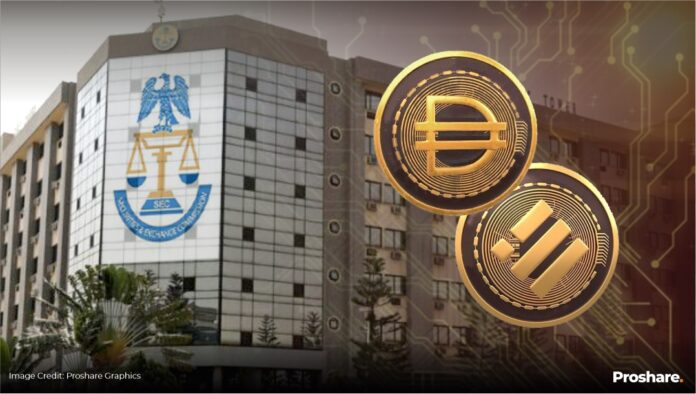The Securities and Exchange Commission (SEC) on Thursday again warned against Ponzi schemes, disclosing that Nigerians have been scammed of over N174 billion over the past few years.
The Commission said the amount involved well over 440 Ponzi schemes operated at one time or the other within the country with varying numbers of unsuspecting investors.
In his presentation at the 2025 year’s edition of SEC Journalists’ Academy themed: “The ISA 2025 and the Future of Nigeria’s Capital Market: Innovation, Protection, and Growth.”, Abdulrasheed Dan-Abu, Head, Fin Tech and Innovation Department, gave an estimated scale of losses to Ponzi schemes among Nigerians to the tune of over $422.7 million or N174 billion.
He attributed the growing trends where people easily fall victims of ponzi to greed, and the craze to ‘get-rich-quick’ without hard work or even any work at all.
Dan-Abu cautioned however, that both operators of ponzi and investors are liable to offences with respect to the Investment and Securities Act 2025.
“Section 61(1) Only persons registered with the Commission can engage in investment management/capital market activities;
“Section 86(7) A person who issues, transfers, sells, or offers securities for subscription or sale to the public, without the prior registration of the securities with the Commission commits an offence and is liable on conviction to a fine of not less than 50% of the value of the securities offered to the public, and in the case of a director or relevant principal officer of the entity, a fine of not less than 10% of the value of the securities offered to the public or imprisonment for a term of not less;
“Section 95, A person shall make any invitation to the public to acquire or dispose of any securities or to deposit money with anybody corporate for a fixed period or able at a call, (2) a penalty of 10% of the gross value of securities or deposits received in the case of a body corporate and N2,000,000 in the case of an individual is applicable to all persons making the invitation to the public” he stated.
Earlier, Dr. Emomotimi Agama, SEC Director-General, noted that digital assets have become a fundamental part of modern finance, with Nigeria leading global adoption as over one-third of its population engages in crypto activities, driven by youth creativity, mobile connectivity, and a desire for inclusion.
Represented by Efe Ebello, the Head, External Relations, the SEC boss however, warned that this rapid growth has also exposed many Nigerians to scams and cyber threats, highlighting the urgent need for strong regulatory frameworks to protect users.
“Nigeria stands at the forefront of this evolution. We are among the world’s top adopters of digital assets, with more than one-third of our population participating in crypto-related activity. This reflects the creativity of our young people, our deep mobile connectivity, and the hunger for inclusion.
“Yet this rapid adoption has also created a fertile ground for exploitation. We have seen scams, phishing attacks, fake wallet applications, and ransomware schemes that target unsuspecting citizens. These threats underscore an urgent truth: without robust regulation, innovation can quickly become vulnerability” he said.
Agama underscored that digital assets are redefining financial infrastructure, asset classes, intermediation, and market access, necessitating robust regulation to combat rising scams and fraud.
“The SEC’s 2022 Rules on digital assets mandate licensing and compliance for Virtual Asset Service Providers, incorporating anti-money laundering and counter-terrorism financing standards aligned with global frameworks such as FATF’s Recommendation
“Collaboration with the Central Bank of Nigeria and the EFCC enhances enforcement, while advanced blockchain analytics are deployed for surveillance and fraud detection” he added.
Despite jurisdictional and capacity challenges, Nigeria’s regulatory approach aims to foster a secure, transparent, and competitive digital finance ecosystem that supports inclusion and investment, safeguarding trust as the foundation of market integrity.
He assured that SEC remains committed to evolving regulation that enables innovation without compromising ethical standards.

